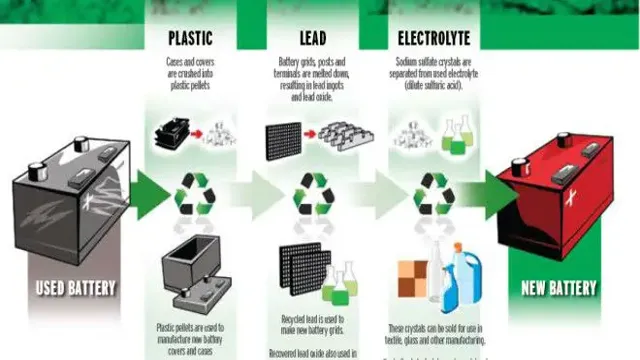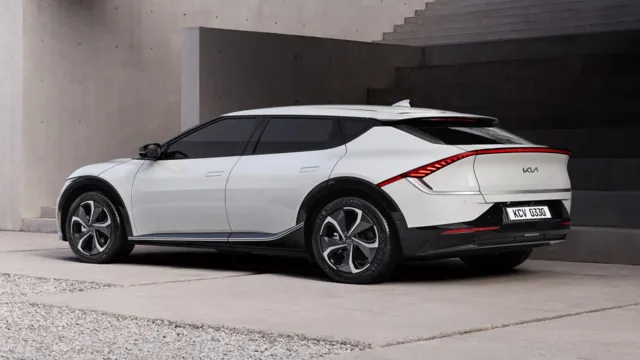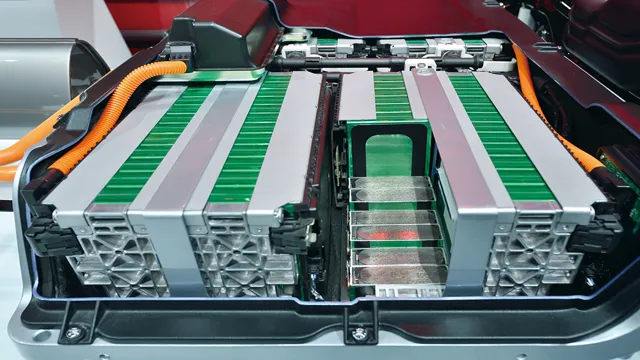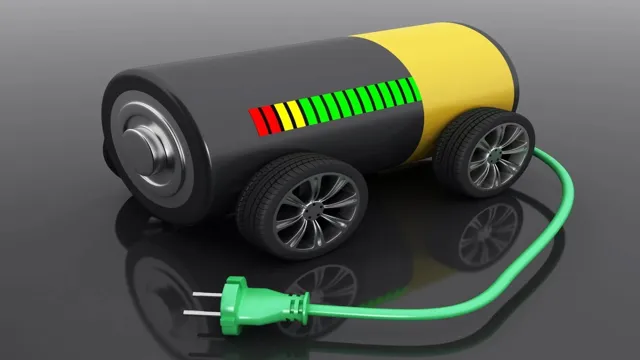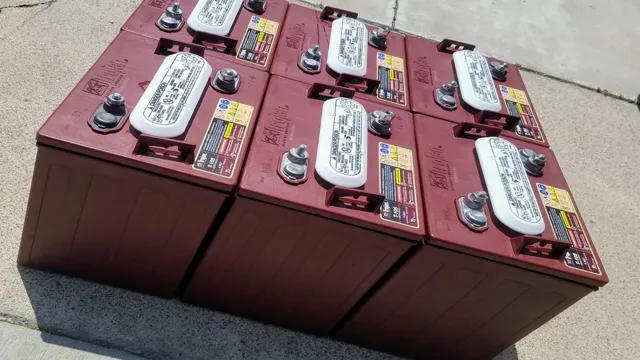5 Environmental Concerns that arise from Electric Car Battery Disposals
Are you aware of the electric car battery disposal dilemma? As electric vehicles grow in popularity, so does the issue of what to do with their batteries when they reach the end of their life. While electric car batteries are designed to last for many years, they will eventually need to be replaced. But what happens to those discarded batteries? The answer is not as straightforward as simply throwing them away in the trash.
Electric car batteries contain toxic materials such as lead, nickel, and lithium, which can harm the environment if not disposed of properly. Additionally, these batteries are massive and require specialized equipment to transport and recycle. The electric car battery disposal dilemma is becoming more urgent as the number of electric vehicles on the road grows.
Experts predict that by 2030, there will be over 145 million electric cars worldwide, which means even more batteries will need to be disposed of in an environmentally-friendly way. But it’s not all doom and gloom. There are efforts underway to create a circular economy for electric car batteries, where they can be recycled, refurbished, or repurposed.
This not only reduces waste but also helps to lower the cost of electric vehicles by enabling the reuse of valuable materials. In conclusion, the electric car battery disposal dilemma presents a complex issue that requires innovative solutions. As the use of electric vehicles continues to grow, it is essential that we address this issue and find ways to dispose of these batteries in an environmentally-friendly and economically viable way.
Rising Number of Electric Cars
As the number of electric cars on the road continues to rise, the issue of electric car battery disposal has become a pressing concern. Unlike traditional car batteries, electric car batteries contain materials that can be harmful to the environment if not properly disposed of. While there are efforts to recycle these batteries, the process is not always efficient or cost-effective.
As a result, many electric car owners are left wondering what to do with their old batteries when they reach the end of their lifespan. This issue highlights the importance of considering the environmental impact of the products we use, even when they seem to be an eco-friendly alternative. It also emphasizes the need for continued research and innovation in battery technology to create more sustainable and environmentally friendly options.
As consumers, we can play a role in this process by making informed choices about the products we use, supporting companies that prioritize sustainability and advocating for policies that promote a more sustainable future.
Statistics on Electric Car Sales and Future Projections
Over the past few years, the adoption of electric vehicles (EVs) has been on the rise globally. According to the International Energy Agency (IEA), over 3 million new EVs were registered in 2020, an increase of 41% compared to 201 Europe was the leading region with over
4 million EVs sold, followed by China with 2 million and the United States with about 330,000. The increasing demand for EVs is primarily attributed to the growing awareness of environmental issues and the efforts to reduce emissions.
The future projections for EV sales are also promising, with analysts predicting a significant increase over the next decade. A recent report by BloombergNEF states that EVs could account for 58% of new passenger car sales worldwide by 2040, up from 3% in 2020. The report also found that the cost of batteries, which is a significant factor in the high price of EVs, is expected to fall by 58% by 2030.
Lower battery costs combined with government incentives and regulations are expected to further boost the growth of EVs in the coming years. As the market for EVs expands, there are also concerns about the infrastructure needed to support it, such as charging stations and electricity generation. Governments and private companies are already investing in charging infrastructure, and there is a growing interest in renewable energy sources to power EVs, such as solar and wind power.
Overall, the rising number of EVs is a positive sign for the environment and a step towards a more sustainable future.
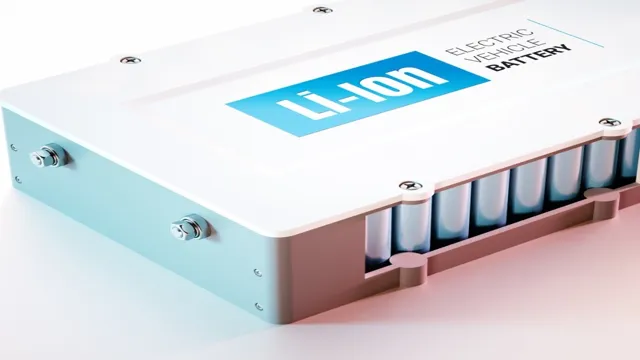
What Happens to Batteries at End of Life?
Electric car battery disposal issues are one of the growing concerns facing the automotive industry today. As the use of electric cars increases, so does the number of batteries reaching their end of life. These batteries are made up of a combination of materials like lithium, cobalt, nickel, and lead, which can be harmful to the environment if not disposed of properly.
In some cases, these batteries can be refurbished and reused, but ultimately most will need to be recycled or disposed of. One solution being explored is the concept of a circular economy, where batteries are taken back at the end of life and recycled to extract the valuable materials. This helps to minimize waste and damage to the environment, while also ensuring a steady supply of materials for future battery production.
However, there are still challenges to be addressed in terms of responsibly handling the disposal of electric car batteries and finding effective ways to recycle them.
Environmental Impact of Improper Disposal
The environmental impact of improper battery disposal is a serious issue that affects people worldwide. Most batteries are made of hazardous materials such as lead, cadmium, and lithium, which can contaminate the soil and pollute the air and water when disposed of improperly. When batteries end up in landfills, they can leak harmful chemicals into the ground that can seep into groundwater or contaminate nearby bodies of water through runoff, ultimately causing long-term environmental damage.
The process of recycling batteries can minimize these issues, as it can save resources and prevent the creation of more waste. To put it in perspective, recycling a single battery can prevent thousands of pounds of greenhouse gas emissions from entering the atmosphere. The good news is that there are various ways to recycle batteries, including drop-offs at local recycling centers or mailbox programs that allow you to mail them.
Simple actions like this can go a long way in reducing the harmful effects of battery waste on the environment and protecting the planet from further damage.
Current Disposal Methods and Challenges
One of the biggest challenges facing battery disposal is the potential environmental impact. When batteries are disposed of in landfill sites, the chemicals in the batteries can seep into the ground and cause contamination. This can have a devastating effect on the surrounding wildlife and can impact local ecosystems.
Additionally, batteries can release harmful gases when they are incinerated, which can contribute to air pollution. The good news is that there are alternative disposal methods available, such as recycling. Recycling batteries helps to reduce the environmental impact of battery disposal by preventing harmful materials from ending up in landfill sites.
By choosing to recycle your batteries, you can contribute to a more sustainable future while helping to protect the environment.
The Growing Need for Battery Recycling
As we move towards a greener future with more electric cars, we also face the issue of electric car battery disposal. These batteries are made up of materials that can be harmful to the environment if not disposed of properly. The need for battery recycling is growing as the number of electric cars on the road increases.
Recycling batteries not only reduces the impact on the environment but also helps to recover valuable materials such as lithium, cobalt, and nickel which can be used to create new batteries. However, not all batteries are the same and require different recycling processes. This is why it is important to properly sort and categorize batteries before sending them for recycling.
The proper disposal and recycling of electric car batteries is a crucial step towards creating a sustainable future.
Economic Benefits of Recycling
Recycling has always been a crucial factor in maintaining a sustainable economy and protecting the environment. One area that is becoming increasingly important is battery recycling. With the rise of electric vehicles and other electronic devices, the demand for batteries has skyrocketed, and so has the need to recycle them.
Battery recycling not only conserves valuable resources but also offers significant economic benefits. The recycling process involves extracting valuable metals like lithium, cobalt, and nickel, which are essential components of batteries, and reusing them in the production of new batteries. The recovered metals can be sold to manufacturers, generating revenue and reducing the need to mine for new metals, which can be both expensive and harmful to the environment.
Battery recycling not only helps in reducing greenhouse gas emissions but also creates job opportunities in the recycling industry. With the growing need for battery recycling, it has become imperative for individuals, businesses, and governments to prioritize waste management practices.
Promising Innovations and Breakthroughs in Battery Recycling
The need for battery recycling has grown more pressing as the global demand for electronic devices has soared. Unfortunately, only a small percentage of old batteries are currently being recycled, leading to environmental risks as hazardous materials end up in landfills. Thankfully, several promising innovations and breakthroughs are emerging in battery recycling technology.
These new approaches focus on recovering valuable materials from batteries, such as cobalt, lithium, and nickel. One example is hydrometallurgical recycling, which uses chemical processes to separate metals from other components in batteries. Another involves “smart” recovery, a technique that uses artificial intelligence to improve the efficiency of the recycling process.
Additionally, some companies and research groups are experimenting with new methods of recycling batteries, such as using bacteria to break down materials or developing modular designs that make it easier to extract valuable components. All of these innovations and techniques may help to reduce the environmental impact of discarded batteries. By recovering valuable materials, battery recycling can also reduce the need for new mining, which has its own environmental consequences.
As more and more companies and individuals prioritize sustainable practices, battery recycling is likely to become an increasingly important aspect of waste management.
What Can Consumers Do to Help?
One of the biggest challenges facing the electric car industry is the disposal of batteries. While these batteries are great for reducing emissions and improving the environment, they can pose problems when it comes to disposing of them safely. Thankfully, there are some things that consumers can do to help.
For starters, it’s important to recycle your batteries correctly. Most communities have recycling programs that accept old batteries, so be sure to take advantage of those resources. Additionally, you can research and support companies that are working to find ways to repurpose or reuse old batteries.
Finally, consider advocating for policies that incentivize sustainable battery disposal practices. By working together, we can help address the electric car battery disposal issues and continue to move towards a more sustainable future.
Tips for Proper Disposal and Recycling
When it comes to proper disposal and recycling, there are a few things that consumers can do to help reduce waste and protect the environment. One key tip is to be mindful of what you’re throwing away and where it’s going. For example, many localities have specific recycling guidelines and will only accept certain types of materials.
It’s important to check with your local waste management company or municipality to ensure you’re following the proper guidelines. Additionally, it’s important to properly dispose of hazardous materials, such as batteries and electronics, which can cause harm to the environment if not handled properly. These items should be taken to a recycling center or special collection event.
By taking these steps, consumers can play a critical role in reducing waste and protecting the environment for generations to come.
The Importance of Addressing Electric Car Battery Disposal
Electric car battery disposal issues are becoming an increasingly important topic for environmentally conscious consumers. As the demand for electric vehicles continues to rise, so too does the volume of batteries that will need to be disposed of in the future. These batteries contain chemicals and heavy metals that can be harmful to the environment if they are not properly disposed of.
Additionally, the process of extracting and producing the materials used in these batteries can have a significant impact on the environment. By addressing electric car battery disposal issues, we can ensure that our use of electric vehicles is truly sustainable and not causing harm to the environment. It is important for both manufacturers and consumers to consider the long-term impact of electric car batteries and find ways to recycle and dispose of them responsibly.
Conclusion
So, in conclusion, the electric car battery disposal issue is not as straightforward as we may have thought. While electric cars are a crucial step towards a greener future, their batteries still pose various challenges. But fear not, the industry is already working on innovative solutions, including recycling, repurposing, and even developing second-life applications for used batteries.
So, let’s keep pushing towards sustainable transportation, and who knows, maybe in the near future, we’ll all be driving on electric highways powered by energy-efficient batteries that never need disposing of.”
FAQs
What are the main issues with electric car battery disposal?
The main issues with electric car battery disposal include the potential for hazardous materials and heavy metals being released into the environment, the lack of proper infrastructure for recycling or disposing of the batteries, and the need for responsible end-of-life management.
Can electric car batteries be recycled?
Yes, electric car batteries can be recycled. However, the current infrastructure and technologies for recycling are still developing, and there are challenges related to costs, efficiency, and supply chain management.
What are some alternative solutions to electric car battery disposal?
There are several alternative solutions to electric car battery disposal, such as repurposing the batteries for energy storage in stationary applications, using battery swapping or leasing services to extend the life of the batteries, or developing new battery chemistries that are more environmentally friendly and easier to recycle.
What is the responsibility of car manufacturers in addressing electric car battery disposal issues?
Car manufacturers have a responsibility to design and produce electric cars and batteries that are environmentally sustainable and promote responsible end-of-life management. This includes using materials that are easier to recycle, investing in recycling and disposal infrastructure, and encouraging consumers to participate in proper battery disposal and recycling programs.
